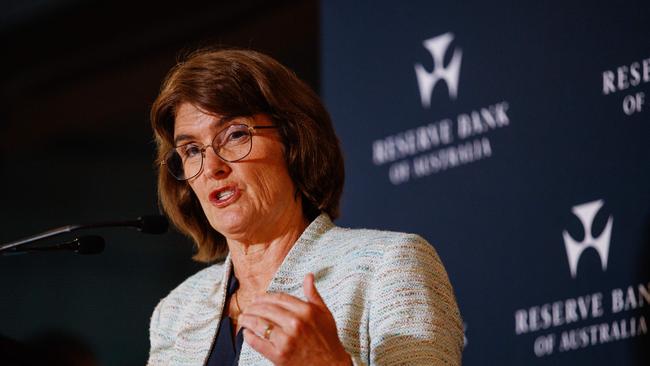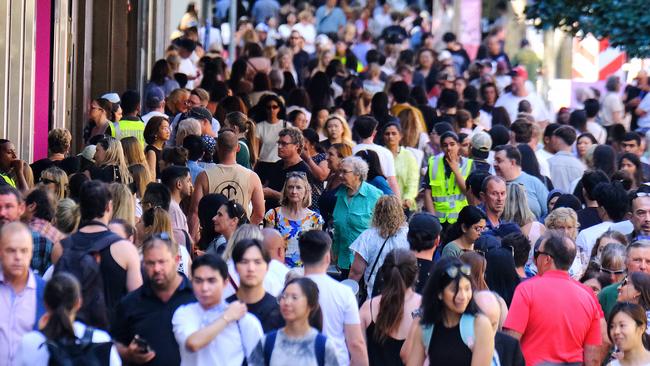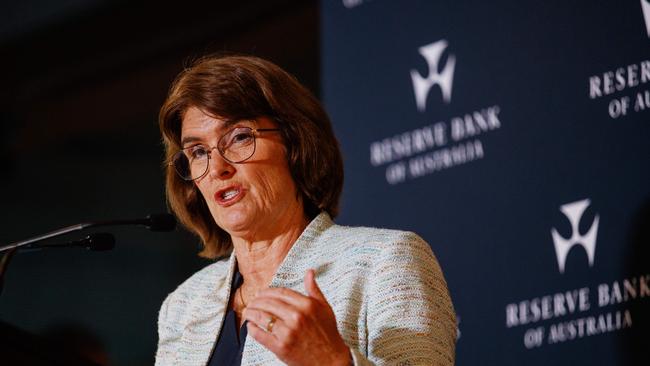‘Approximately zero’: RBA defends incorrect forecasts
The RBA has defended the economic forecasting it does to help the board when it considers changes to the cash rate, admitting the predictions are likely wrong.

Interest Rates
Don't miss out on the headlines from Interest Rates. Followed categories will be added to My News.
The Reserve Bank of Australia says its own forecasts are often wrong but still justifies the importance of these market predictions.
In a speech made in Adelaide, RBA’s chief economist Sarah Hunter outlined why the bank makes forecasts and why they are often wrong.
“Our baseline forecast of how the economy may evolve is a key input to the monetary policy decision,” she said.
However, Ms Hunter said in all likelihood these assumptions would be proved wrong with the world hard to predict.
“It represents what we think is the most likely single path for the economy. But it’s only one path, and the chance of that precise path being the one that happens is approximately zero.”
She said anything from unforeseen events, misrepresenting how variables in the economy react with each other or simply getting the economic assessment wrong can throw out these forecasts.

“We know the future is uncertain, and the forecasts will usually be wrong in various ways,” she said.
”The answer is that monetary policy operates with a lag, which means the board needs to think ahead when setting the cash rate target today.”
She did however say 70 per cent of two-year ahead inflation forecasts had fallen within 1 percentage points over or below the central forecasts since 1993, and 90 per cent within 2 percentage points.
Dr Hunter said complicating matters was the time lag between when a monetary policy decision was made and its effect on the real economy.
“We know the future is uncertain, and the forecasts will usually be wrong in various ways.
“Given the uncertainty in forecasts, why spend so much time and effort on them?
“The answer is that monetary policy operates with a lag, which means the board needs to think ahead when setting the cash rate target today,” she said.
The speech comes as the RBA faces mounting criticism for previously incorrect forecasts.
Former RBA governor Philip Lowe was not renewed in the position following a number of outspoken remarks including the conditions for a rate rise may not come until 2024. Instead, interest rate rises started in 2022.
Economists warn the current RBA Governor Michele Bullock is at risk of repeating the same mistake as Mr Lowe.

Ms Bullock was asked about this at a press conference on Tuesday after she kept Australia’s official interest rates on hold at 4.35 per cent despite a weakening economic outlook.
“If we really thought we had things wrong, we would have moved, I think is the answer to that,” she said.
“There’s a difference of opinions on how to weight various signals that are coming from the economy.
“It’s true that some of the economic data has been a bit softer, and it’s also true that some of the nominal side, in particular, inflation, is remaining quite elevated, so you’ve got two sets of data which are telling you possibly different things.
“What I would suggest is that … there is a difference between the rate of growth in the economy, and we all know it’s slowing, the private sector in particular is slowing, and the level of demand.
“We’ve been making this point for some time that growth exploded so strongly coming out of the pandemic that it got very strong at a very high level, and the economy couldn’t supply the goods and services that people were demanding coming out of the pandemic.
“We’re still experiencing that, so we have to have a period of slower growth,” Bullock said.
Originally published as ‘Approximately zero’: RBA defends incorrect forecasts




